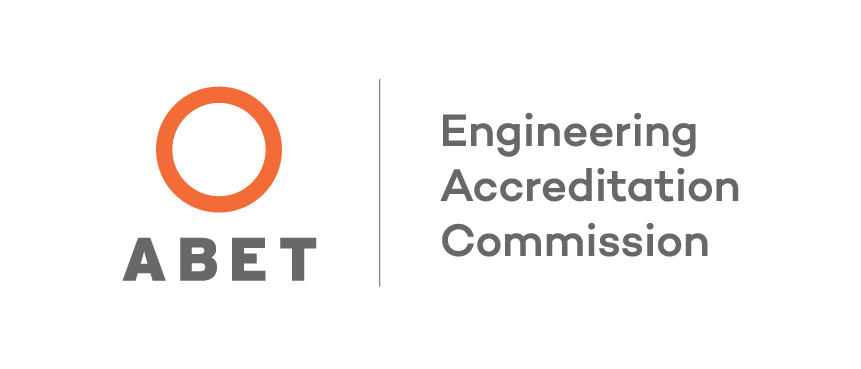Mechanical Engineering
BS, BS/MS
Major in mechanical engineering
Mechanical engineers work on the design, analysis, production, and operation of mechanical and thermal systems, including tools, engines, and machines.
With a mechanical engineering degree from UMass Dartmouth, you will be prepared to work in a diverse range of careers including aerospace, manufacturing, robotics, biomedical, product design, energy, ocean technology, sustainable development, scientific research, defense, and the military.
What do mechanical engineers do?
Mechanical engineers design, build, and improve machines, devices, and systems that power the world around us. Mechanical engineers solve problems and develop solutions for everything from 3D-printed medical devices to complex sensors and large-scale machinery. Mechanical engineers are at the heart of innovation, improving everyday life through smarter, more efficient, and sustainable technologies.
Growing opportunities are available for mechanical engineers in cutting-edge medical research, new energy resources, novel material design, and robotics applications. Encompassing a wide range of fields, mechanical engineering includes the study of energy transformations, manufacturing, mechanical systems, material science, and systems control.
The Mechanical Engineering department also offers a bachelor of science degree in mechanical engineering with a concentration in advanced manufacturing and a concentration in energy.
Our program emphasizes hands-on education by providing small lab sections and lab and computer facilities dedicated to undergraduate teaching. Courses include manufacturing, materials science, design, fluid mechanics, control theory, thermodynamics, heat transfer, and robotics.
Your coursework will culminate with a senior capstone project that will allow you to solve real-life engineering problems.
For the BS degree, you will complete 72 credits in general and mechanical engineering with 123 credits overall.
Energy concentration
The department offers a BS degree in mechanical engineering with a concentration in energy: a focus on energy production and utilization.
Manufacturing concentration
The department offers a BS degree in mechanical engineering with a concentration in manufacturing: the transformation of raw materials into useful products through the most effective methods.
Manufacturing engineers determine the equipment, tools, and processes required to convert the design of a product into reality. They apply analytical skills to discover the optimal combination of machinery, materials, and methods needed to keep production costs and time low.
With the minor in mechanical engineering, you have the option to specialize in controls, design, manufacturing, and thermal sciences—or you may choose an open path of studies. For the minor, you will need to complete 20 to 22 credits.
Average starting salary for UMassD mechanical engineering majors, class of 2023: $0,0
NACE AY 2023 NACE Data Collection of Undergraduate Alumni
- Capstone projects: most senior engineering students work in small teams on real-world, industry-specific challenges that demand analysis, proposals, prototypes, and solutions.
- Experience: participate in co-op and internship programs to gain valuable experience with regional industries, often while also earning money for college.
- Community: join organizations such as the Society of Women Engineers, the National Society of Black Engineers, and Engineers Without Borders.
- New initiatives: collaborate, create, and explore at the Center for Scientific Computing and Visualization Research.
International (F-1) students who receive science, technology, engineering, and mathematics (STEM) degrees may be eligible to apply for a 24-month extension of their post-completion optional practical training (OPT). To learn about the eligibility criteria and detailed steps to apply, please review the International Student & Scholar Center (ISSC) OPT page and USCIS resources. F-1 students must consult with the ISSC to apply for STEM OPT.
UMass Dartmouth offers a great transfer experience for students who:
- have graduated from an accredited community college, or
- have earned college credits from an accredited college or university
- Accelerated BS/MS Program: Qualified undergraduates in mechanical engineering may enroll in the accelerated BS/MS program and complete both degrees within five years
- MS in Mechanical Engineering: Provides advanced education enabling students to solve complex engineering problems
- PhD Program in Engineering & Applied Science: Emphasizes the interdisciplinary nature of modern research at the interfaces of engineering, the applied sciences, and technology.
/prod01/production-cdn-pxl/media/umassdartmouth/programs/coe/210421-UMD-WIND-TUNNEL-59-1600X400.jpg 512w)

/prod01/production-cdn-pxl/media/umassdartmouth/college-of-engineering/mne-dept/faculty-staff-students/Amirzadeh_Afsoon_002.jpg?text=fallback320)
/prod01/production-cdn-pxl/media/umassdartmouth/college-of-engineering/mne-dept/faculty-staff-students/sbhowmick.jpg?text=fallback320)
/prod01/production-cdn-pxl/media/umassdartmouth/college-of-engineering/mne-dept/faculty-staff-students/vchalivendra.jpg?text=fallback320)
/prod01/production-cdn-pxl/media/umassdartmouth/college-of-engineering/mne-dept/faculty-staff-students/whuang.jpg?text=fallback320)
/prod01/production-cdn-pxl/media/umassdartmouth/profiles/engineering/mechanical-engineering/Hangjian-LING-31.jpg?text=fallback320)
/prod01/production-cdn-pxl/media/umassdartmouth/profiles/engineering/PARK-23a.jpg?text=fallback320)
/prod01/production-cdn-pxl/media/umassdartmouth/profiles/engineering/computer-science/Raessi,Mehdi_006_DVD183.jpg?text=fallback320)
/prod01/production-cdn-pxl/media/umassdartmouth/profiles/engineering/Hamed-SAMANDARI-10.jpg?text=fallback320)
/prod01/production-cdn-pxl/media/umassdartmouth/profiles/engineering/Banafsheh-Seyedaghazadeh-AGAHAZADEH-18.jpg?text=fallback320)
/prod01/production-cdn-pxl/media/umassdartmouth/profiles/engineering/caiwei-SHEN-10.jpg?text=fallback320)
/prod01/production-cdn-pxl/media/umassdartmouth/profiles/smast/AmitTandon_EAS2.jpg?text=fallback320)
/prod01/production-cdn-pxl/media/umassdartmouth/programs/featurebox-honors.jpg?text=fallback512)
/prod01/production-cdn-pxl/media/umassdartmouth/programs/featurebox-study-abroad.jpg?text=fallback512)
/prod01/production-cdn-pxl/media/umassdartmouth/programs/featurebox-OUR.jpg?text=fallback512)
/prod01/production-cdn-pxl/media/umassdartmouth/programs/featurebox-university-studies.jpg?text=fallback512)